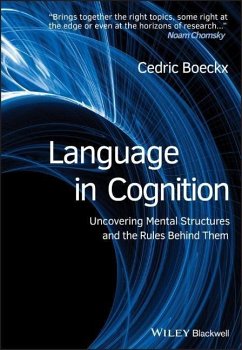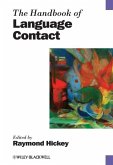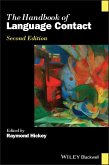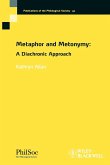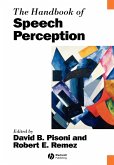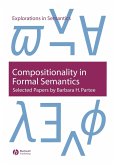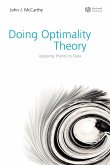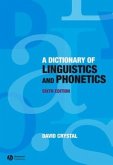"Boeckx has a deep familiarity with all of the (very wide-ranging) material he intends to present, and has done original and important work in several of these areas. He is a lucid and engaging expositor, and is highly qualified in every respect to undertake an enterprise of this nature -- which is, I think, a very valuable one.
This textbook explores the ways in which language informs the structure and function of the human mind, offering a point of entry into the fascinating territory of cognitive science. Focusing mainly on syntactic issues, Language in Cognition is a unique contribution to this burgeoning field of study.
Guides undergraduate students through the core questions of linguistics and cognitive science, and provides tools that will help them think about the field in a structured way
Uses the study of language and how language informs the structure and function of the human mind to introduce the major ideas in modern cognitive science, including its history and controversies
Explores questions such as: what does it mean to say that linguistics is part of the cognitive sciences; how do the core properties of language compare with the core properties of other human cognitive abilities such as vision, music, mathematics, and other mental building blocks; and what is the relationship between language and thought?
Includes an indispensable study guide as well as extensive references to encourage further independent study
This textbook explores the ways in which language informs the structure and function of the human mind, offering a point of entry into the fascinating territory of cognitive science. Focusing mainly on syntactic issues, Language in Cognition is a unique contribution to this burgeoning field of study.
Guides undergraduate students through the core questions of linguistics and cognitive science, and provides tools that will help them think about the field in a structured way
Uses the study of language and how language informs the structure and function of the human mind to introduce the major ideas in modern cognitive science, including its history and controversies
Explores questions such as: what does it mean to say that linguistics is part of the cognitive sciences; how do the core properties of language compare with the core properties of other human cognitive abilities such as vision, music, mathematics, and other mental building blocks; and what is the relationship between language and thought?
Includes an indispensable study guide as well as extensive references to encourage further independent study
Boeckx has a deep familiarity with all of the (very wide-ranging) material he intends to present, and has done original and important work in several of these areas. He is a lucid and engaging expositor, and is highly qualified in every respect to undertake an enterprise of this nature -- which is, I think, a very valuable one. The emerging disciplines he intends to introduce are likely to become a central part of research and teaching programs in the future. Attempts to integrate them in a form accessible to students and a general audience have been limited. His outline brings together the right topics, some right at the edge or even at the horizons of research. If I were teaching undergraduate or graduate courses in these areas, I cannot think of a competing text that I would prefer.
"Amongst the book's strengths, particularly commendable are the connections made to other cognitive domains and the biological sciences." (The Linguist, July 2010)
"Although each subsection is brief, the author includes chapter-by-chapter notes of cited material at the end of the text. The motivated reader will have no trouble tracking down the primary sources that the author discusses." (PsycCRITIQUES, March 2010)
"Although each subsection is brief, the author includes chapter-by-chapter notes of cited material at the end of the text. The motivated reader will have no trouble tracking down the primary sources that the author discusses." (PsycCRITIQUES, March 2010)

